| Blade Size | 11" |
|---|---|
| Handle Size | 5" |
| Blade Material | High Graded 5160 Carbon Steel |
| Handle Material | Rosewood |
| Scabbard Material | Laha (Traditional Nepalese adhesive), Natural Water Buffalo Leather, Pinewood, White Metal |
| Handle Type | Fixed Rat Tail |
| Hand Orientation | Ambidextreous |
| Upper Spine | 10 mm |
| Lower Spine | 3 mm |
| Handle Circumference | 3.9" |
| Belly | 1.8" (4.8 cm) |
| Spine Hardness | 22 – 25 RC |
| Belly Hardness | 45 – 46 RC |
| Edge Hardness | 58 – 60 RC |
| Khukuri Weight | 750gm |
| Other Included Items | Karda, Chakmak |
| Total Weight | 1100gm |
This khukuri is one of the very exclusive khukuri from EGKH. The blade of this khukuri is made with heated beaten steel which is heated then folded and beaten again to give the blade extra strength for heavy-duty tasks such as cutting logs and hardwood.
US$ 88.00
This is an 11″ Chainpure Sirupate Jungle Khukuri. The blade is made up of highly graded 5160 carbon steel with a tail tang 5-inch handle which is made up of rosewood. It is one of the very exclusive khukuri from EGKH khukuri house. Here at EGKH, all of our products are hand-made in Nepal by well-experienced Bishwakarmas (traditional khukuri makers from “kaami” caste), using only high-quality materials, and traditional hand tools & methods.
“Chainpur” is a small village located in the eastern part of Nepal and this type of khukuri is mostly made in this village. The name “Chainpure” of the khukuri is given after the village name where it originated centuries ago. Chainpure people specialized in many ornamental, souvenir & decorative displays amongst which the special Chainpure khukuri is one of their prized and prestigious assets.
The blade of this khukuri is made with a heated and beaten steel. The steel is then heated again folded and beaten again. This gives the blade extra strength for heavy-duty tasks such as cutting logs and hardwood.
This Khukuri has two pockets on the back of the scabbard which hold a blunt steel called “Chakmak” for sharpening the blade or for striking spark with a flint and a little knife known as “Karda” used for skinning small animals and opening cans. The open notch that we see in most of the kukris is discarded and instead made into a see-through hole in the shape of a cow’s hoof. The notch whether open or closed resembles the cow’s hoof since the cow is a holy animal in Nepal. The hole or notch also represents the “Symbol of Fertility” believed by Hindus as the holy sign of Lord Shiva. There is a strong belief that the notch brings fortune and prosperity. A nozzle is made just in front of the notch, to work as a blood dripper.
EGKH is one of the finest Kukri/Knives manufacturers and sellers in Nepal.
Only logged in customers who have purchased this product may leave a review.

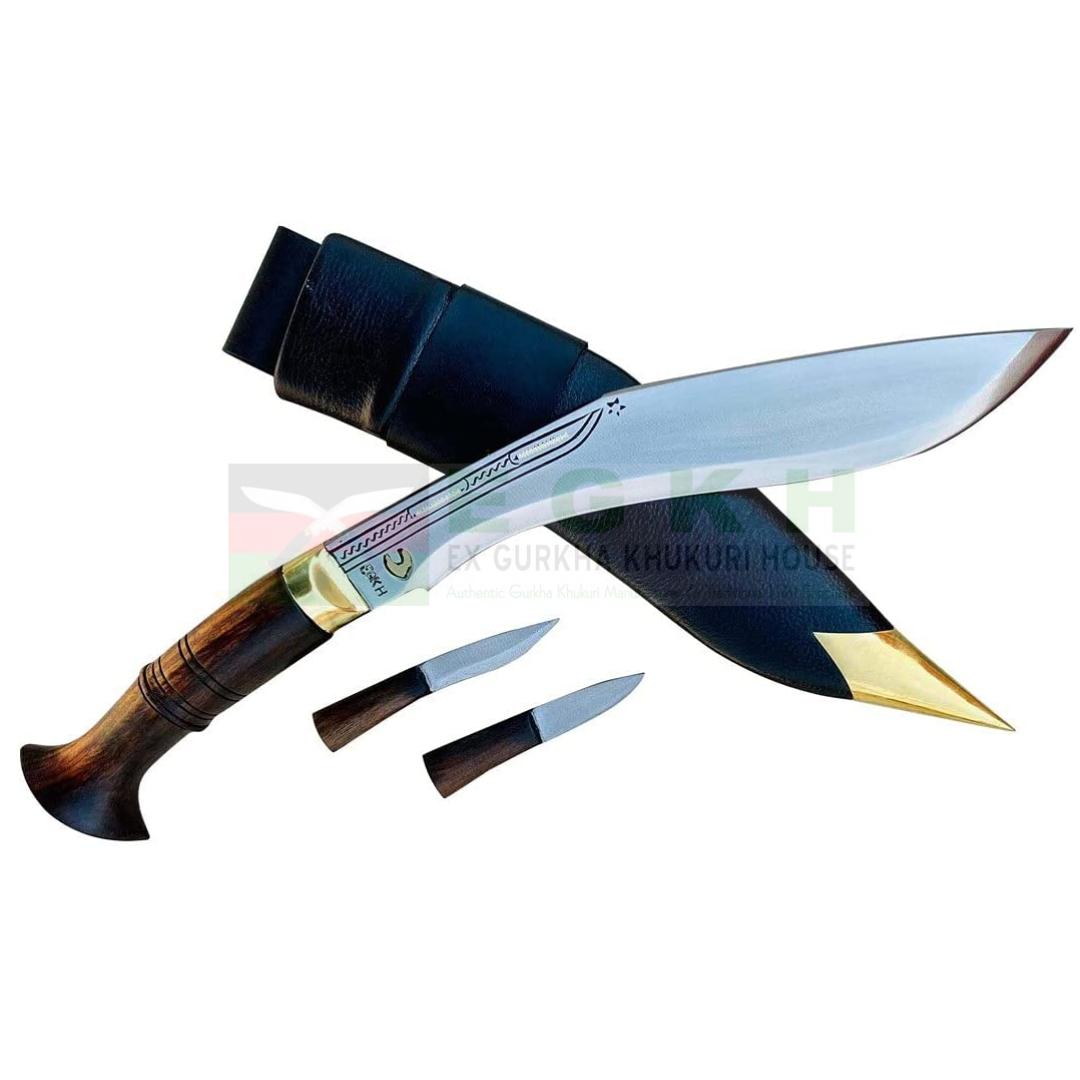
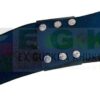
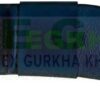
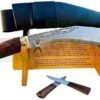
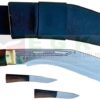
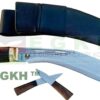
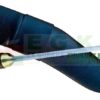
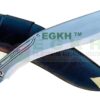
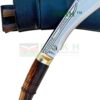
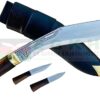
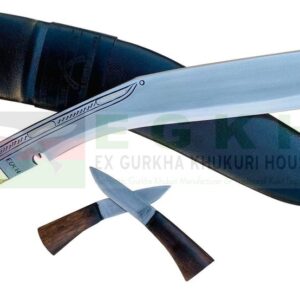
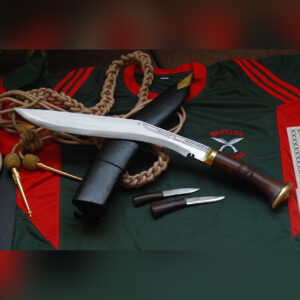
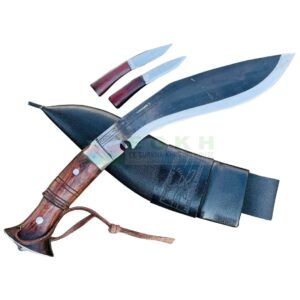
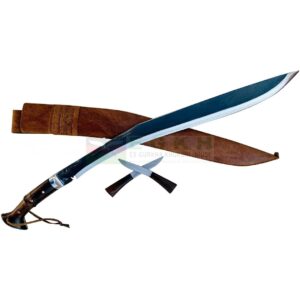
Reviews
There are no reviews yet.